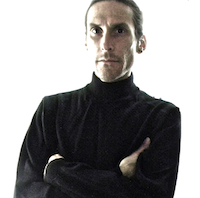 Native scholar, performer, composer Alan Lechusza Aquallo, PhD (Luiseno/Maidu) is quickly becoming one of the countries top advocates for Native youth and scholarship. Alan Lechusza is currently the Native representative for the National Associate of Independent Schools (NAIS), Scholar-in-Residence for Young Native Scholars and Inter-Tribal Youth (YNS/ITY) and the Faculty Advisor for the Native American Student Alliance at Palomar College in addition to sitting on many Advisory Boards for Native youth and education. Alan Lechusza’s interdisciplinary research has been received around the globe including: The American Technology and Music Instruction (ATMI), Queen’s College (London), Southwest Popular Culture Conference, and The Society for Ethnomusicology (SEM) just to name a few. His groundbreaking work on Native Hip Hop has been followed up by numerous publications and guest lectures at universities/colleges throughout Canada, Europe and the U.S. Alan Lechusza is an active performer/composer who can be heard on such major recording labels as Tzadik, 9Winds, pFmentum Lira Productions.
Native scholar, performer, composer Alan Lechusza Aquallo, PhD (Luiseno/Maidu) is quickly becoming one of the countries top advocates for Native youth and scholarship. Alan Lechusza is currently the Native representative for the National Associate of Independent Schools (NAIS), Scholar-in-Residence for Young Native Scholars and Inter-Tribal Youth (YNS/ITY) and the Faculty Advisor for the Native American Student Alliance at Palomar College in addition to sitting on many Advisory Boards for Native youth and education. Alan Lechusza’s interdisciplinary research has been received around the globe including: The American Technology and Music Instruction (ATMI), Queen’s College (London), Southwest Popular Culture Conference, and The Society for Ethnomusicology (SEM) just to name a few. His groundbreaking work on Native Hip Hop has been followed up by numerous publications and guest lectures at universities/colleges throughout Canada, Europe and the U.S. Alan Lechusza is an active performer/composer who can be heard on such major recording labels as Tzadik, 9Winds, pFmentum Lira Productions.
“In an urban society we deal with congestion on a multitude of levels each day. The embraced consistency of interference by either technological or human means is contemporarily daunting, yet we continue in an unfaltering manner as though this borage of turbulence were natural. How do we express an understanding of congestion and by what means do we create an acceptance of congestion in our daily lives? Has the reversal of roles finally come to play where we, as urban dwellers, can only articulate our lives through the amount of congestion that we experience within our lives? Has the time finally come for such an unholy way of life to become a sacred and protected way of life? This work examines the intersection(s) of our daily routine and lives in an urban setting borrowing sound sources from these juxtapositions. This is an on-going sound project that has been realized in many different settings and artistic contexts. Congestion (part II) will focus upon the urban landscape defined by SoundWalk 2011.”